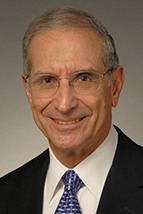What happens when members of a partnership make careful plans for what will happen when one of the partners dies – but later, when one of them does pass away, they don’t like the outcome? A likely result is that the matter will end up in court, and one such case was recently the subject of a ruling by the California Court of Appeal (Han v. Hallberg.)
In 1975, four dentists formed a partnership to operate a dental office building. The agreement required partners to be practicing dentists.
They amended the agreement in 1989 to allow the estate of a deceased partner to retain the interest of the deceased partner, and for the partnership to continue to operate. The estate had to notify the partnership within 90 days if it wanted to retain the ownership interest.
Five years later, the partners amended the agreement, to allow one of the group – a Dr. Hallberg – to assign his partnership interest to a trust, replacing him as an individual. Hallberg agreed that the trustee of his trust would be “bound by the terms and conditions” of the partnership agreement.
In 2003 Hallberg appointed his son, Hallberg Jr., as co-trustee of his trust, and in 2009 named his son the sole trustee.
Dr. Hallberg died in 2010. If he had still been a partner, his estate would have had 90 days to notify the partnership that it wanted to retain his interest. His trust made no such notification.
After 90 days had passed, the remaining partners informed Hallberg’s son that they would “exercise their option to purchase the interest” of his father.
The son replied that the partnership interest was owned by a trust, which was still intact, and that the trust was not obligated to sell its interest to the remaining partners. Instead he wanted the property sold and the proceeds divided among all owners, including the trust.
The dentists filed suit in Los Angeles against the son as trustee, asking the court to order him to comply with the buyout terms of the partnership agreement.
The trial court held that the trust was not “a separate legal entity that continues to own a partnership interest,” and that Dr. Hallberg was actually the partner.
Despite the wording of the 1994 amendment to the partnership agreement, the trial judge decided, “in the context of the full agreement and the relationship of the partners, it would appear that the individual partners expected to have some control over which person they would be dealing with in managing the partnership.”
The judge ruled in favor of the other partners, whereupon Hallberg Jr. appealed.
The appellate court reversed the ruling of the trial court. “The holder of the partnership interest, for the 15 years before and at the time of Dr. Hallberg’s death, was the trustee of the Hallberg Trust – not Dr. Hallberg individually,” the justices said. “That did not change when Dr. Hallberg died,”
They acknowledged that under California law, “a trust is not a person but rather a fiduciary relationship with respect to property,” and that a trust is not an entity separate from its trustees.” For example, a trust cannot sue or be sued; instead, a trustee must act on behalf of the trust.
But, they noted, that “does not mean that a trust cannot act – as always, through its trustee – as a partner under general partnership law.” In fact, they pointed out, California law “expressly provides that a trust may associate in a partnership.”
Although one of the other dentists testified at trial that he “never contemplated that he would be partners with a non-dentist,” a court has to “presume parties understood the agreements they sign,” and that they “intended whatever the agreement objectively provides.”
The wording of the partnership agreement means that, “because Dr. Hallberg individually was not a partner when he died, his death did not require his estate to make an election to retain his interest, as that interest had long ago been assigned to the trustee of the Hallberg Trust, and did not pass to Dr. Hallberg’s estate. The Hallberg Trust, or its trustee acting as a partner by virtue of being the trustee, continues to be a partner.”
In addition to reversing the trial court’s decision, the appellate court awarded Hallberg Jr. his costs on appeal.
We are so accustomed to ignoring for income tax purposes the typical revocable living trusts commonly used in California that it is easy to think of them as being invisible for other legal purposes.
Dr. Hallberg’s partners learned a costly lesson.
By Michael C. Agran



